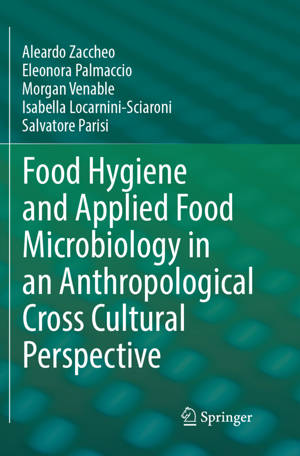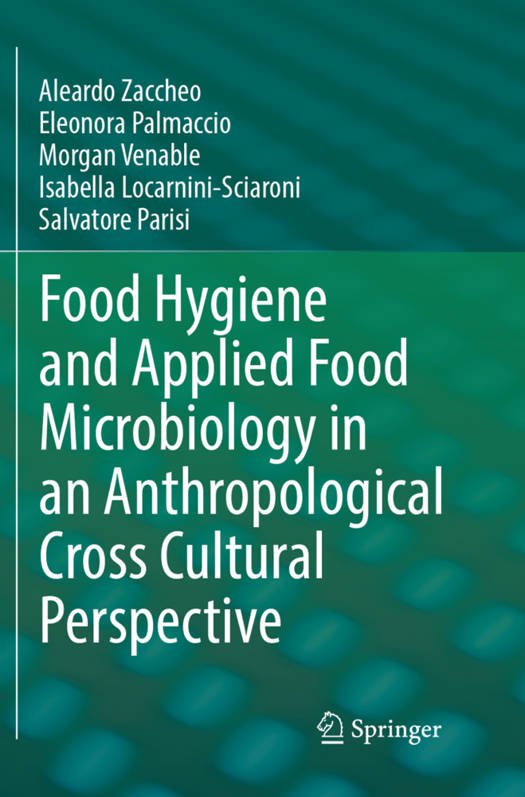
- Retrait gratuit dans votre magasin Club
- 7.000.000 titres dans notre catalogue
- Payer en toute sécurité
- Toujours un magasin près de chez vous
- Retrait gratuit dans votre magasin Club
- 7.000.0000 titres dans notre catalogue
- Payer en toute sécurité
- Toujours un magasin près de chez vous
Food Hygiene and Applied Food Microbiology in an Anthropological Cross Cultural Perspective
Aleardo Zaccheo, Eleonora Palmaccio, Morgan Venable, Isabella Locarnini-Sciaroni, Salvatore ParisiDescription
The book demonstrates that food safety is a multidisciplinary scientific discipline that
is specifically designed to prevent foodborne illness to consumers. It is generally assumed
to be an axiom by both nonprofessionals and professionals alike, that the most
developed countries, through their intricate and complex standards, formal trainings
and inspections, are always capable of providing much safer food items and beverages
to consumers as opposed to the lesser developed countries and regions of the world.
Clearly, the available data regarding the morbidity and the mortality in different areas
of the world confirms that in developing countries, the prevalence and the incidence of
presumptive foodborne illness is much greater. However, other factors need to be taken
into consideration in this overall picture: First of all, one of the key issues in developing
countries appears to be the availability of safe drinking water, a key element in any
food safety strategy. Second, the availability of healthcare facilities, care providers, and
medicines in different parts of the world makes the consequences of foodborne illness
much more important and life threatening in lesser developed countries than in most
developed countries.
It would be therefore ethnocentric and rather simplistic to state
that the margin of improvement in food safety is only directly proportional to thelevel of development of the society or to the level of complexity of any given national
or international standard. Besides standards and regulations, humans as a whole have
evolved and adapted different strategies to provide and to ensure food and water safety
according to their cultural and historical backgrounds. Our goal is to discuss and to
compare these strategies in a cross-cultural and technical approach, according to the
realities of different socio-economic, ethnical and social heritages.
Spécifications
Parties prenantes
- Auteur(s) :
- Editeur:
Contenu
- Nombre de pages :
- 109
- Langue:
- Anglais
Caractéristiques
- EAN:
- 9783319831763
- Date de parution :
- 11-09-18
- Format:
- Livre broché
- Format numérique:
- Trade paperback (VS)
- Dimensions :
- 156 mm x 234 mm
- Poids :
- 185 g

Les avis
Nous publions uniquement les avis qui respectent les conditions requises. Consultez nos conditions pour les avis.






